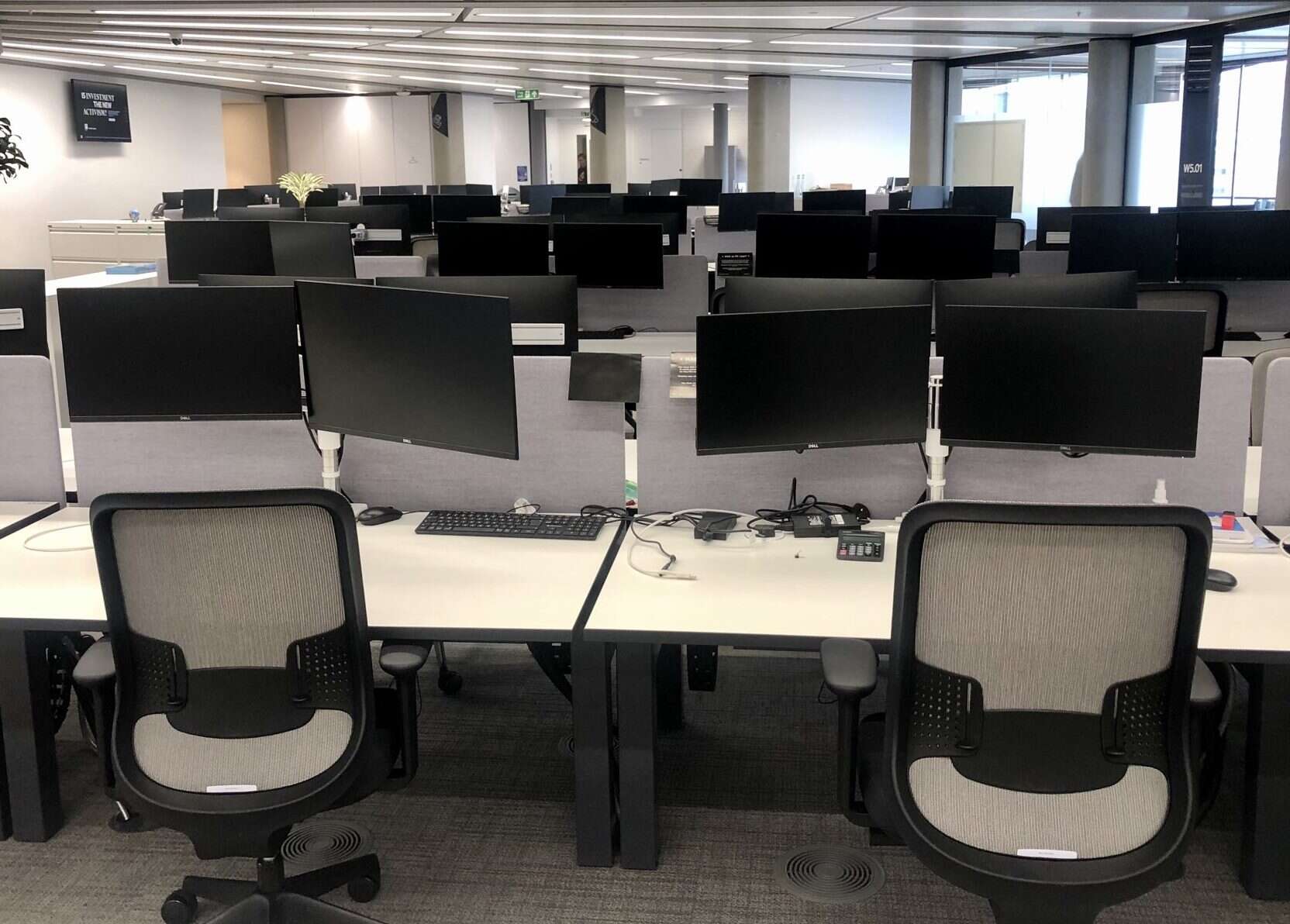
The need to maintain social distancing has meant that newsrooms are still largely empty more than four months after the UK went into lockdown, with most journalists continuing to work from home.
At the height of the pandemic, newspapers were being produced without anyone in the office – an industry first – although many retained a core team of production journalists and editors at their desks throughout.
Broadcasters have continued to operate with a mixture of in the field reporting and presenting both from the studio and from home.
But the need to maintain a distance of two metres, or one metre “with risk mitigation”, per UK Government guidelines on offices, has meant newsrooms have been unable to return to full force.
For some, the change appears to be permanent.
At the FT the majority of the newsroom is working remotely, something which will be supported through to the end of the year with a phased reopening of the daily business title’s London HQ (pictured) planned from October.
Even then attendance will be voluntary and numbers restricted. “We envision the long-term future of work at the FT to be more flexible and involve remote working, at least part of the time,” said a spokesperson.
In a poll, which ran online from 21 July to 3 August, Press Gazette asked readers: “If you normally work in an office, when do you expect to return?”
A majority of the 1,628 respondents said they did not expect to return to the office at all (26%), followed by those who said they did not expect to return this year (23%). Only 171 (10.5%) said they were already back.
The Government has relaxed restrictions on public transport use and ended work from home guidance this week in a bid to get people back in offices, but the change seems to have made little difference to newsrooms.
At the Guardian, the vast majority of staff are continuing to work from home until September at the earliest, with longer-term plans under review.
The News UK building, which houses the Sun and Times newsrooms, is operating at a maximum capacity of 30%. Masks must be worn on entering and leaving and a traffic light system of cleaning desks is in place – open, closed, to be cleaned – along with a one-way system.
News conferences have limited seating, spaced 2m apart, and screens for those joining by video call. Most meeting rooms are closed.
Press Gazette understands that one desk in four is currently being used in the newsroom and anyone who wants to go into the office has been told they will have to book a desk first to avoid overcrowding.
At the Mail, Press Gazette understands most journalists are back in the newsroom, but with social distancing in place not everyone can fit in at once so a rota system has been employed.
At Reach, publisher of the Mirror, Express and Star, the vast majority of staff are being told to keep away from the office until October at the earliest. A spokesperson said the company was assessing options for “more permanent home working solutions beyond that date”.
Those who are made redundant, as the company looks to cut up to 580 jobs, will return only to pick up belongings once agreements have been made.
The Telegraph is running a core operation across business critical areas, including its London newsroom, having taken steps to safeguard staff in line with Government guidelines.
A spokesperson said: “We continue to review business continuity measures and work closely with staff on arrangements.”
At ITV a “large proportion” of staff are still working from home, with a spokesperson saying they believed this would be the case for the “foreseeable future”.
At Sky News, journalists do a mix of field work, office and home working as standard. They have continued to work in the newsroom throughout the year, with rotas to maintain social distancing.
A spokesperson said: “Our workplace has also adapted to ensure this can continue.”
The BBC has been running a “core news service” since the lockdown, with newsrooms remaining open under tightened hygiene and safety measures. A spokesperson told Press Gazette it was an “evolving situation”.
Email pged@pressgazette.co.uk to point out mistakes, provide story tips or send in a letter for publication on our "Letters Page" blog
